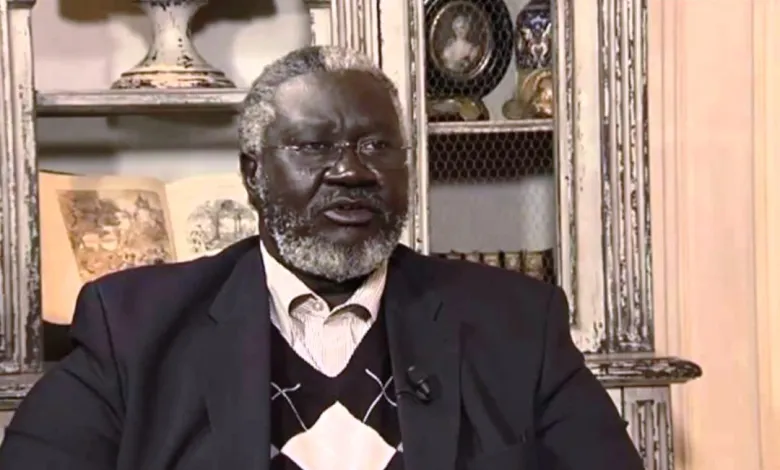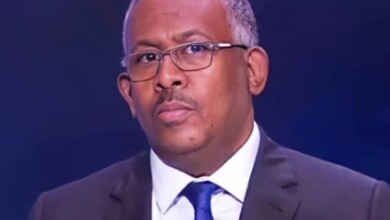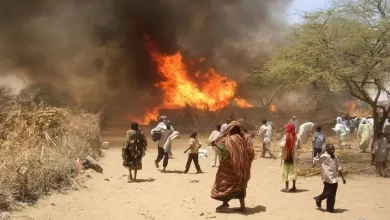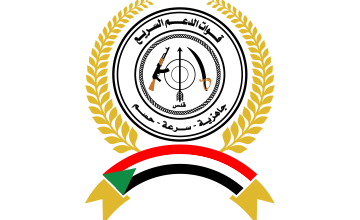Experts: Al-Burhan’s Deputy statements about racism are the beginning of Sudan’s disintegration

Experts considered Malik Agar’s controversial statements about the spread of racism within State institutions as “Evidence of the emergence of plots to divide the country on racial and regional grounds.”
Malik Agar, Deputy to the Commander-in-chief, Lt. Gen. Abdel Fattah, stated during a youth conference in Port Sudan on Saturday: “We are living in an era of triviality, where racism is rampant in all State institutions.”
He added: “This is unacceptable, and we must steer clear of such afflictions in order to build the Sudanese State.”
A Racist Plot
The journalist and political analyst, Abu Obeida Barghouth commented that “The war in itself was a racist plot by a group from the Islamic Movement that didn’t want the marginalized to be in power.”
He pointed out to “Erem News” that “The ruling Islamic Movement during the era of former President Omar Al-Bashir had split in (1999) on racial and regional grounds.”
He explained that the same group that removed marginalized people from power at that time is currently controlling the decision in regards to the war.
He added that “Malik Agar realized this fact recently, because these people have become quite blatant in their racist approach, and he may have experienced it personally, because it is practiced within the Army and within State institutions.”
He pointed out that “Agar” had previously stated that he was the second man in the de facto government in Port Sudan, and now he is talking about racism within State institutions, therefore, it invokes questions about whether he experience racism within his institution, to the extent of describing it as trivial, according to him.
Barghouth referred to the statement of Col. Mohamed Osman Bello, who defected from the Army in the past few days and joined the Rapid Support Forces, in which he revealed the true extent of racism behaviors within the Sudanese Army, as well as the assassination of officers on an ethnic and regional basis.
He added that “This trend is very dangerous, and portends the catastrophe of the disintegration of Sudan on racial and regional grounds, this is what the Port Sudan government is aiming and working for, wanting Sudan to disintegrate into failed Statelets in tribal enclaves.”
Sudan’s Disintegration
For his part, political analyst Ammar Al-Baqir believes that Malik Agar’s speech indicates the reality of racism within State institutions, and at the level of its leadership, whether in the Army or the Sovereignty Council, referring to Agar’s recent change in tone after he had supported Al-Burhan in his vision and proposal.
Al-Baqir pointed out in an interview with “Erem News” that “Agar”, two days ago, issued similar statements, where he shared that “If we don’t adhere to the unity of the country, the east and the north will collapse.” As if he was referring to the existence of a plot to give up parts of the country in exchange for the security and stability of northern and eastern Sudan, according to him.
He added that “The plot to divide Sudan on a regional racial basis already exists with the Islamic Movement that controls the decision of the Sudanese Army, as it wishes to establish its State only on the eastern and northern parts of the country.”
Al-Baqir based his comments on the transfer of power after the outbreak of the ongoing war, to the city of Port Sudan, and establishing it as a temporary capital.
He added that “Malik Agar may have witnessed the implementation of this plan in a practical way, which prompted him to voice his opinions publicly about racism within the State, especially since he hails from the Blue Nile region, which falls outside the borders of the imaginary Islamic Movement State,” according to him.
A political source, in his statement to “Erem News”, linked the return of the dissolved National Congress Party, under the protection of the Army, to the existence of a plot to divide Sudan, as a last option for the Islamic Movement headed by Ali Karti, to ensure its continued presence in power.
The source told “Erem News” that “The National Congress group that appeared in public doesn’t represent all supporters of the dissolved party, but rather only represents Ali Karti’s group that controls the decision of the Sudanese Army, and wishes to impose its own agenda at the expense of the interests of all Sudanese nationals.”
He explained that “The National Congress group that has begun to return to the forefront is headed by Ibrahim Mahmoud Hamid, Ali Karti’s man, who has ties to the State of Eritrea, and Al-Amin Daoud, the leader of what was known as the “Eastern Orta Forces”, the new militia that announced itself in eastern Sudan in conjunction with the return of the National Congress Party to the forefront.”
The source pointed out that “This group’s plan is based on dividing Sudan with the intervention of neighboring countries, in an attempt to get rid of the Rapid Support Forces.”
He added that “This group will practically begin implementing the River and Sea State project that activists have recently promoted.”
The project includes eastern Sudan and the states overlooking the Nile River, working to ensure the safety of these areas, and allowing the State to resume its activities within, especially the educational process.
While the rest of the country will be removed from this situation, and will then be dealt with as conflict zones that can be separated and divided, according to the source.
He stressed that “The River and Sea State project cannot be implemented in isolation from the support of regional countries, which prompted the presence of Ibrahim Mahmoud, head of the dissolved National Congress Party, in eastern Sudan, to adopt the task of coordinating with the Eritrean party, a development that began to bear fruit with the Eastern Orta Forces,” according to him.
The source predicted that “The preparatory phase will begin to separate the region of Darfur by demonizing it to the public opinion, isolating it from State services, especially the educational process, and perhaps changing the currency, in addition to a host of other measures that will push the people of the region to consider the idea of secession and establishing their independent State.”
The source asserted that “The plans to divide Sudan will become a reality if the Sudanese failed to realize what is at stake, and the world didn’t put forth efforts to pressure the parties to the conflict to stop the war and spare Sudan the enormity of disintegration.”
Indeed, the Central Bank of Sudan, which is controlled by the Sudanese Army, announced on Saturday its intention to change the paper currency, despite the disruption of the banks’ services in the entire region of Darfur and the states of “Kordofan, Al-Jazeera, Khartoum,” which in turn renders the monetary mass in these areas useless.
The Advisor to the Commander of the Rapid Support Forces, Ayoub Nahar, considered in a statement to “Erem News” that the step comes within the plan of the de facto government in Port Sudan to pressure the people of Darfur to adopt the option of secession.





